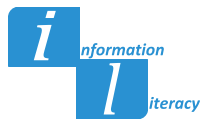Learning Management Systems (LMSs) are basic technological infrastructure for online learning services. They are also referred as Virtual Learning Environments or Course Management Systems.
LMSs are currently used by formal education institutions (primary, secondary and tertiary education), as well as by non-formal education institutions (lifelong learning, vocational training, etc). LMSs support students, educators and educational institutions, enable learning by removing spatial and temporal limitations to the learning process.
LMSs are software systems that integrate a number of tools that may support administrators and learning designers on the organization and distribution of learning materials, on managing courses, on student assessment, on using communication and collaboration tools, etc.
These tools may be categorized as follows:
- Class Management tools for managing students/trainees, creating groups, assessing students, assigning roles and access rights to the educational material etc.
- Learning Content Management tools that support creation, structure and distribution of learning material, design of learning environment, import-export of material, file management (e.g. backup), etc.
- Communication Tools that support syncrhonous and asyncronous communication (e.g. e-mail), chat, discussion fora, audio/video-conferencing, wikis, blogs, announcements, screen sharing, etc.
- Assessment Tools for creation, distribution and management of assessment activities, such as self-evaluation, online assignment submission, e-portfolios, etc.





